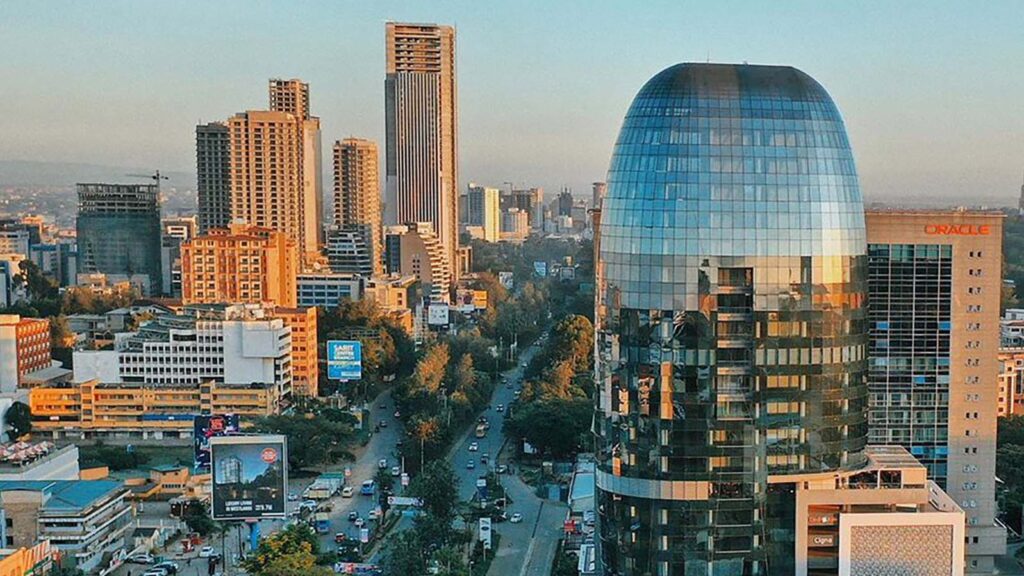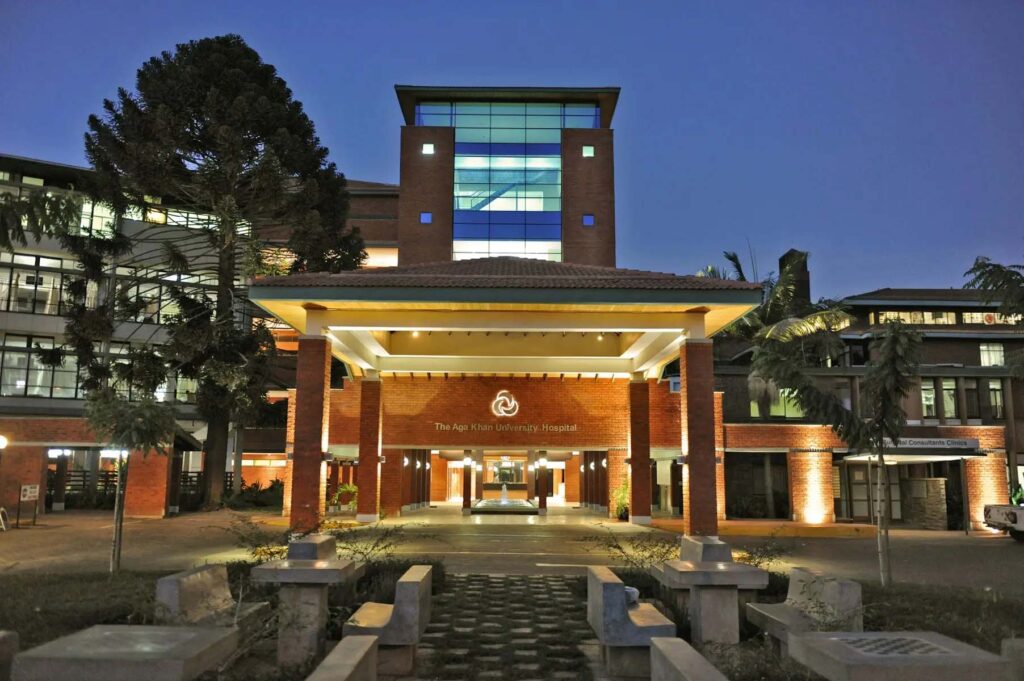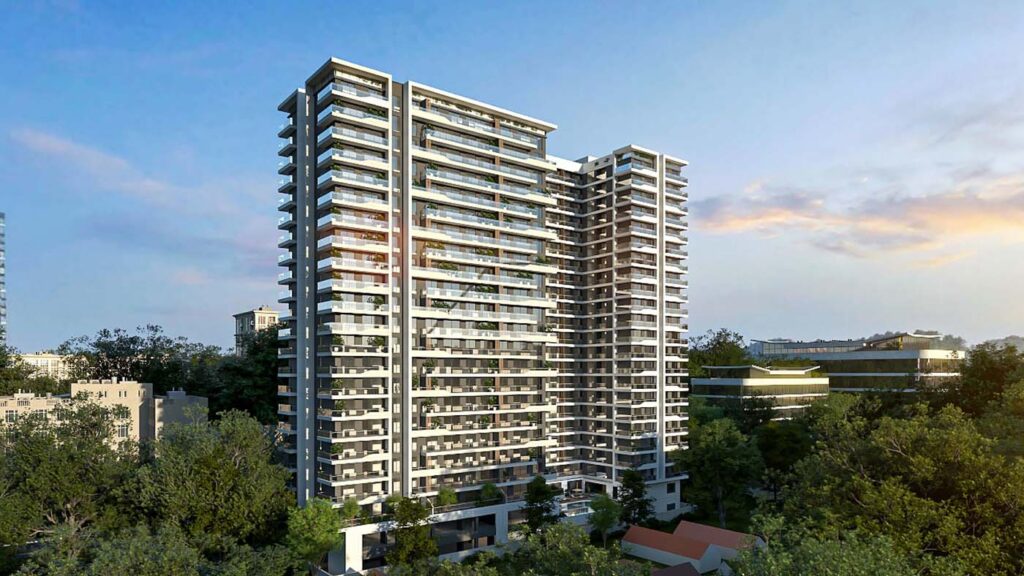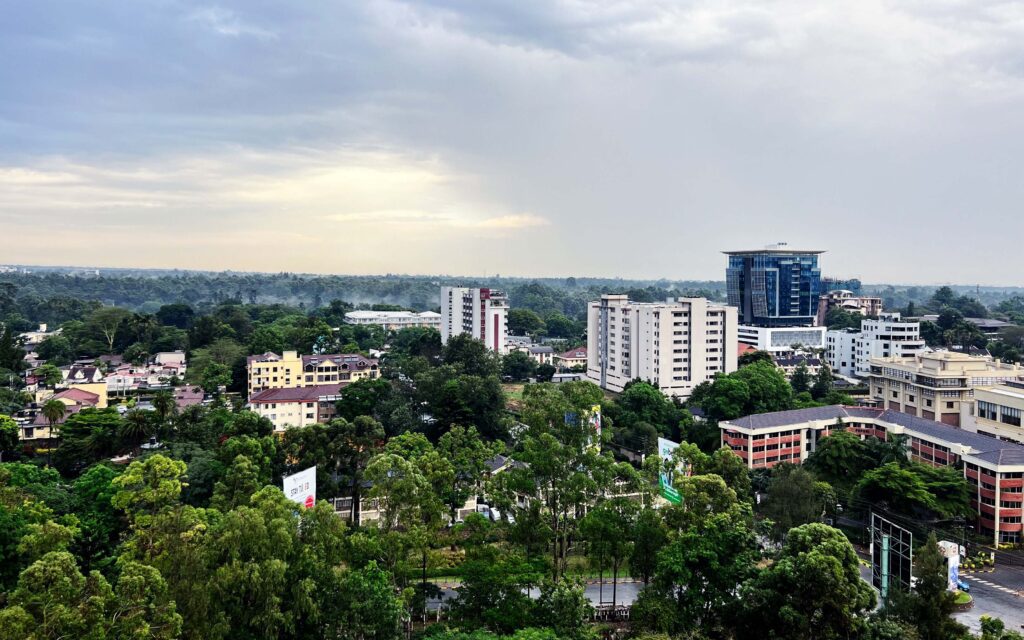Living in Kenya as an expat has evolved dramatically over the past decade, but here’s what most guides won’t tell you: while Kenya offers incredible opportunities, your choice of location can make or break your experience. Most expats automatically head to Nairobi for job prospects, but savvy expats are discovering that Kenya’s true value lies in understanding all your options before committing.
Quick Answer: Is Kenya Worth It for American Expats?
Absolutely. Kenya offers 60-80% lower living costs than major US and UK cities, year-round tropical climate, growing digital infrastructure, and diverse expat communities. Success depends heavily on choosing the right location and understanding local systems.
Key Takeaways for Smart Packing
Cost advantage: Live comfortably on $800-1,500 monthly (Nairobi ranked 160th out of 227 cities globally for affordability)
- Visa flexibility: Multiple long-term options including 2024’s new digital nomad visa for remote workers
- Internet infrastructure: Fiber optic reaching 23.7 Mbps mobile speeds in major areas, up from 22.4 Mbps in 2023
- Mobile connectivity: 66.04 million connections (118.7% of population) with M-Pesa revolutionizing payments
- Safari recognition: Kenya won World Travel Awards’ “Leading Safari Destination” 7 times in the past 9 years
The Reality of Expat Life in Kenya
Sumeeya Abdalla, a Canadian expat who’s been living in Kenya for seven months, shares her honest perspective on daily life there. “I saw this American girl doing it and I’m like, I want to do my point of view,” she explains in a recent social media video about her experience.
Her biggest discoveries center around Kenya’s digital payment systems and transportation convenience. “Mpesa is the most genius thing I’ve ever discovered in my life. It’s so smart, it’s so easy, it’s so quick, it’s so fast. I haven’t even used cash once,” Sumeeya notes. The cash-on-delivery system for Uber Eats and online shopping particularly impressed her, calling it “amazing” compared to prepayment systems elsewhere.
However, she also learned to adjust expectations in other areas. Restaurant service differs significantly from North American standards – if you don’t like your order, “they can’t just make your order again or give you a new dish, which I’m so used to back in Canada.” She’s adapted by sticking to familiar foods rather than experimenting with new dishes.
Despite challenges like petty theft warnings and needing to research hair salons carefully, Sumeeya enthusiastically recommends Kenya to other foreigners. “I love Kenya so much, my favorite place in the whole world,” she says, particularly praising the coastal areas for their relaxing atmosphere compared to Nairobi’s faster pace.
Understanding Kenya’s Expat Landscape
Nairobi: East Africa’s Business Hub

Nairobi remains Kenya’s primary expat destination, home to approximately 30,000 British expats and thousands of Americans. The capital serves as East Africa’s financial and trade center, housing 4.4 million people and headquarters for many international businesses. Major employers include UN agencies, multinational corporations, tech companies, and NGOs, with salaries for skilled expats typically ranging from $2,000-8,000 monthly.
The city ranked 9th globally in 2024 for making expats feel welcome, scoring 4th for helping newcomers get settled and 4th for friendliness. However, Nairobi’s challenges are substantial. Traffic congestion consumes 3+ hours daily for many residents, while air pollution frequently exceeds WHO recommendations. Security requires constant vigilance, with burglary, mugging, and theft affecting over 50% of the population annually according to recent data.
Coastal Alternatives: Mombasa and Beach Towns
Kenya’s coast offers dramatically different expat experiences at 40-60% lower costs than Nairobi. Mombasa, home to 1.2 million people, provides urban amenities with immediate beach access. The slower pace reduces stress, while ocean breezes naturally moderate temperatures. Internet infrastructure improved dramatically through Kenya’s KES 5 billion National Optic Fibre Backbone Infrastructure project, enabling remote work that wasn’t viable five years ago.
Smaller coastal towns like Kilifi, Malindi, and Watamu attract Americans seeking authentic beach living. These areas feature 50 national parks and nature reserves within reach, along with access to seven undersea internet cables including SEACOM, TEAMS, and EASSy that provide reliable connectivity. The trade-off involves limited local job opportunities and basic healthcare requiring travel to Mombasa for specialized care.
Highland Retreats: Nakuru and Eldoret
Kenya’s highland regions provide temperate climates similar to Mediterranean countries. Towns like Nakuru offer affordable living, clean air, and access to stunning national parks. These areas suit retirees and remote workers seeking tranquil environments without coastal humidity.
Cost Breakdown: Living in Kenya by Location
Nairobi Expat Costs
Housing dominates expat budgets in Nairobi. Safe neighborhoods like Westlands, Karen, and Lavington charge $500-1,500 monthly for 2-3 bedroom apartments. Utilities add $100-200 monthly, while reliable internet costs $30-60. Transportation via Uber or private car ranges from $200-400 monthly depending on usage patterns.
Food costs vary dramatically based on shopping habits. Local markets offer fresh produce at 70-80% savings compared to expat-oriented supermarkets. A typical American family spends $300-600 monthly on groceries, while dining out ranges from $8-25 per meal depending on restaurant choice.
Security expenses often surprise new expats. Gated community fees, private security, and safe transportation add $100-300 monthly to budgets. Many Americans also maintain international health insurance costing $100-300 monthly for comprehensive coverage.
Coastal Living Economics
Coastal areas offer significant savings across all categories. Similar housing quality costs $250-800 monthly in Mombasa or smaller towns. Utilities remain similar, but many homes use solar power reducing electricity costs. Transportation needs decrease dramatically with walkable town centers and minimal traffic.
Fresh seafood, tropical fruits, and local produce cost 40-60% less than Nairobi prices. Restaurant meals range from $3-15, while entertainment costs remain minimal. Security concerns are lower, reducing associated expenses significantly.

Total Monthly Budgets
Conservative American expats live comfortably in Nairobi on $1,200-1,800 monthly, while coastal areas enable similar lifestyles for $800-1,200. These budgets include housing, food, transportation, utilities, and moderate entertainment. Luxury lifestyles or international schooling increase costs substantially.
Remote workers and retirees often achieve better value in coastal areas, while career-focused expats may find Nairobi’s opportunities justify higher costs. The key is matching location choice with personal priorities and financial capabilities.
Visa Guide for Americans Living in Kenya
Entry Requirements and Tourist Visas
Americans can enter Kenya visa-free for up to 30 days, perfect for initial reconnaissance trips. The electronic travel authorization (eTA) system replaced traditional visas in 2024, streamlining entry procedures. Tourist extensions allow up to 6 months total stay for those testing long-term potential.
Long-term Visa Options
The new digital nomad visa, launched in 2024, allows remote workers to stay up to one year with renewal options. Requirements include proof of income ($2,000+ monthly), health insurance, and clean criminal background. Application fees cost $300 with processing times of 2-4 weeks.
Business visas suit entrepreneurs and investors, requiring demonstration of legitimate business activities or capital investment. Class M permits enable longer-term residence for those establishing businesses or making significant investments in Kenya.
Work permits remain the most complex option, typically requiring job offers from Kenyan employers and extensive documentation. Processing times can exceed 3 months, making advance planning essential.
Residency Pathways
Long-term residents can apply for permanent residence after continuous legal stay. Investment-based residence requires demonstrating significant capital contributions to Kenya’s economy. Marriage to Kenyan citizens provides alternative pathways with specific documentation requirements.
Healthcare and Education for American Expats
Healthcare Infrastructure
Kenya’s healthcare system operates on multiple tiers. Public facilities provide basic care at minimal costs but often lack equipment and supplies. Private hospitals in Nairobi offer international standards, with facilities like Aga Khan Hospital and Nairobi Hospital providing comprehensive services.

Coastal areas have limited specialist care, requiring travel to Mombasa or Nairobi for complex procedures. Many American expats maintain international health insurance covering evacuation to home countries for serious medical issues.
Medical costs remain significantly lower than US standards. Routine consultations cost $20-50, while dental care and minor procedures cost 60-80% less than American equivalents. Prescription medications are generally available and affordable.
Educational Options
International schools in Nairobi follow American, British, or International Baccalaureate curricula. Tuition ranges from $8,000-25,000 annually depending on school reputation and facilities. Popular choices include International School Kenya, Brookhouse School, and Rosslyn Academy.
Coastal areas have fewer international school options, with some families choosing homeschooling or online education supplemented by local cultural experiences. University options include several respected institutions, though many Americans prefer completing higher education in home countries.
Building Your Professional Life
Remote Work Opportunities
Internet Infrastructure Revolution
Kenya’s digital transformation accelerated through the KES 5 billion National Optic Fibre Backbone Infrastructure project, with 100,000km of fiber-optic cable planned across all 1,450 wards by 2028. Mobile download speeds increased to 23.7 Mbps in 2024 from 22.4 Mbps in 2023, while 5G subscriptions reached 509,737 by September 2023. Seven undersea cables including SEACOM, TEAMS, and EASSy provide international connectivity.
The Kenya Internet Exchange Point (KIXP) saw traffic expansion from 1 Gbps in 2012 to nearly 20 Gbps in 2019, resulting in $6 million annual cost savings. Companies like Safaricom, Zuku Internet, and JTL Faiba now offer speeds from 10-100 Mbps, enabling the same remote work capabilities available in major global cities. Power outages remain occasional challenges, making solar backup systems valuable for consistent connectivity.
Local Employment Market
Job opportunities concentrate heavily in Nairobi, particularly in international development, technology, finance, and tourism sectors. Competitive positions require relevant experience and often involve extensive application processes. Salary expectations should reflect local economic realities while considering cost of living advantages.
Entrepreneurship opportunities exist across multiple sectors, particularly in technology, sustainable agriculture, tourism, and renewable energy. Kenya’s growing economy and improving business environment create openings for innovative ventures.
Professional Networking
American Chamber of Commerce Kenya provides business networking and advocacy services. Professional associations exist across multiple industries, while social clubs and community organizations offer broader networking opportunities. LinkedIn and Facebook groups connect expats with similar professional interests.
Cultural Integration and Social Life
Understanding Kenyan Culture

Successful expat life in Kenya requires cultural sensitivity and patience. English serves as the official language, but learning basic Kiswahili demonstrates respect and facilitates daily interactions. Understanding local customs regarding greetings, dress codes, and social hierarchies prevents misunderstandings.
Religious diversity includes Christianity, Islam, and traditional beliefs. Most Kenyans are welcoming to foreigners who show genuine interest in local culture and customs. Building relationships takes time but creates lasting support networks essential for long-term success.
Expat Communities and Social Activities
Nairobi’s Expat Ecosystem and Geographic Clustering
Nairobi’s expat communities organize around specific neighborhoods that create distinct social circles. Wealthy areas like Gigiri and Muthaiga cluster around embassies and the American International School (ISK), attracting primarily American expats. Karen in the south draws British families due to excellent British curriculum schools, while maintaining its “Kenya Cowboy” (KC) heritage from white Kenyan settlers who ran horse farms and safari companies. Kilimani and Lavington serve as popular mid-tier expat neighborhoods offering modern amenities and central locations, while Kileleshwa provides more affordable options for budget-conscious expats.
The American Women’s Association of Kenya (AWA) operates as a non-profit promoting community service and volunteering opportunities, while the Kenya Quilt Guide connects around 130 quilting enthusiasts who meet monthly in Nairobi with weekly workshops for group projects. However, expat community dynamics face unique challenges: high turnover creates friendship fatigue, with many residents staying only 1-2 years before moving on. This creates distinct groups between permanent and short-term residents.
School communities drive much social interaction, as children attend 8am-4pm schedules with weekend activities. Traffic constraints mean expats often stick to their neighborhood areas, making cross-town socializing an occasional event rather than routine. The monetary divide between expats (typically in Kenya’s top 5% of earners) and local communities can complicate relationship building beyond expat circles.
Coastal Community Realities
Coastal expat communities around Mombasa, Kilifi, and Malindi operate differently from Nairobi’s structured hierarchy. The smaller scale creates more organic social networks, with regular beach cleanups organized through WhatsApp groups and farmers’ markets serving dual functions as grocery shopping and community meetups. Distant Relatives Ecolodge in Kilifi acts as a central hub for coast-based expats, hosting movie nights, yoga classes, and cultural events.
As Sumeeya Abdalla noted, coastal areas provide more relaxed atmospheres compared to Nairobi’s “fast pace where everyone’s just on the move.” The smaller expat population means fewer formal organizations but stronger personal connections, with many residents reporting that community support networks develop naturally through shared activities and geographic proximity rather than structured meetups.
Recreation and Entertainment
Kenya’s safari industry sets global standards, with the country winning World Travel Awards’ “Leading Safari Destination” in 2013, 2015, 2016, 2017, 2018, 2019, 2020, and 2021. Home to 50 national parks and nature reserves, Kenya offers everything from the Masai Mara’s big cat concentrations to Amboseli’s elephant herds against Mount Kilimanjaro’s backdrop. Current park fees range from $118-236 per adult daily depending on season, with private safaris starting around $300 per person daily.
Urban entertainment in Nairobi includes restaurants charging KES 600-1,500 for casual meals, theaters, and cultural events. Shopping malls provide familiar Western amenities, while local markets offer authentic cultural experiences. Golf courses, tennis clubs, and fitness centers (KES 3,500-10,000 monthly memberships) cater to active lifestyles. Coastal areas provide year-round diving at coral reefs, deep-sea fishing, and water sports.
Investment and Property Ownership
Real Estate Market Overview
Kenya’s property market has shown consistent growth, particularly in Nairobi and coastal areas. Foreign ownership is permitted through 99-year leasehold arrangements, providing substantial long-term security. Prime locations have appreciated 15-25% annually over recent years.

Nairobi real estate offers rental income potential and capital appreciation, though property management can be challenging. Coastal properties appeal to those seeking vacation homes with rental potential during peak tourism seasons.
Legal Considerations
Property Law Specifics for Foreign Ownership
Article 65 of Kenya’s 2010 Constitution restricts foreign ownership to leasehold tenure only, with maximum 99-year terms. Any document claiming to grant longer terms automatically becomes a 99-year lease. Companies are considered “foreign” unless 100% owned by Kenyan citizens, meaning partial foreign ownership prevents freehold acquisition entirely.
Foreign nationals who held freehold titles before August 2010 saw them automatically convert to 99-year leaseholds under Article 8(1). The National Land Commission was required to complete conversions within 5 years of 2017 regulations, though implementation remains incomplete. Trusts cannot circumvent these restrictions – any freehold interest held by foreigners reverts to the state, which grants 99-year leases at peppercorn rent.
Agricultural land transactions require Land Control Board consent, which typically cannot authorize sales to foreigners without presidential gazette notice exemptions. However, first-row beach plots no longer require presidential consent following the 2012 High Court ruling in Mohamed Balala vs. Attorney General.
Tax Obligations and Costs
Property transfers trigger multiple tax obligations with specific rates and timing requirements. Stamp duty applies at 4% of property value in urban areas and municipalities, or 2% in rural areas, calculated on the higher of purchase price or government valuation. The April 2024 Council of Governors directive expanded 4% rates to newly gazetted urban areas across multiple counties.
Capital Gains Tax (CGT) applies at 15% of net gain for property sellers (increased from 5% in January 2023), payable upon registration of transfer documents. This is a final tax that cannot be offset against other income. Buyers need Kenya Revenue Authority (KRA) PIN numbers for all transactions, while sellers must clear CGT obligations before ownership transfers complete.
For US tax residents, Kenya property ownership creates dual tax obligations. The US taxes worldwide income including Kenyan rental income and capital gains, though Foreign Tax Credits may offset some Kenyan taxes paid. Professional tax advice becomes essential for optimizing structures, particularly given Kenya’s complex property transfer procedures and both countries’ reporting requirements.
Investment Opportunities Beyond Real Estate
Kenya’s growing economy creates opportunities in agriculture, technology, renewable energy, and tourism sectors. Government incentives encourage foreign investment, particularly in manufacturing and export-oriented businesses. Due diligence and local partnerships often determine success levels.
Challenges and Practical Solutions
Infrastructure Limitations
Power outages remain common throughout Kenya, though Nairobi experiences fewer disruptions than rural areas. The Kenya Power and Lighting Company reported major outages in August, November, and December 2023, with the August incident requiring 24 hours for country-wide restoration. Solar power systems provide reliable alternatives, particularly effective given Kenya’s consistent sunshine.
Internet reliability improved substantially but still experiences occasional disruptions. In May 2024, damage to SEACOM and EASSy submarine cables off South Africa caused slower speeds until June repairs. Banking systems operate reliably through mobile platforms, though ATM availability varies outside major towns. Water quality requires filtration or bottled alternatives in many areas.
Security Considerations
Crime Statistics and Regional Variations
Kenya’s 2024 crime index ranks 34th highest globally at 56.8, with reported crimes crossing 100,000 for the first time in 2023 – a 19% increase driven by economic pressures. Nairobi averages 10 vehicle hijackings daily according to official data, while burglary and theft affect over 50% of residents annually as noted in previous statistics.

The US Embassy issued security alerts in March 2024 about increased criminal activity in Nairobi’s residential areas, particularly purse and phone snatching. However, coastal areas like Mombasa experience significantly lower crime rates, with most incidents limited to tourist-targeted theft rather than violent crimes.
Specific high-risk areas include Nairobi’s Kibera slum, downtown River Road area, and certain highways like the old Airport South Road where carjacking incidents concentrate. Expat-favored neighborhoods like Westlands, Karen, and Lavington maintain better security through gated communities and private patrols.
Transportation Safety Reality
Road accidents statistically pose greater risks than violent crime for most expats. Kenya’s matatu system experiences frequent accidents due to poor maintenance and speeding, with many vehicles uninsured. The Mombasa-Nairobi highway sees regular incidents, while the new Nairobi Expressway provides safer airport access than traditional routes.
Police checkpoints are common nationwide, requiring all vehicles to stop when directed. Terrorist threats remain moderate, with Al-Shabaab linked incidents occurring primarily near the Somalia border and in northeastern regions. The 2019 attack at Nairobi’s 14 Riverside complex highlighted urban vulnerability, though such incidents specifically targeting expatriate communities remain rare.
Administrative Challenges
Visa Processing Times and Systems
Kenya launched its Electronic Travel Authorization (eTA) system in January 2024, replacing the previous eVisa platform. Processing takes 2-3 working days through etakenya.go.ke, with Americans eligible for 5-year multiple-entry eTAs. Digital nomad visas require 2-4 weeks processing, demanding proof of $2,000+ monthly income, health insurance, and clean criminal background checks.
Work permits remain complex, often requiring 3+ months processing through employer sponsorship. The process demands multiple in-person visits to immigration offices, with documents frequently requiring notarization and apostilles from home countries.
Banking Requirements Reality
Opening bank accounts requires specific documentation that many guides don’t mention. Foreign nationals need a KRA PIN (tax registration number), Kenyan mobile phone number, and often a local “introducer” – someone with an existing account who vouches for you. Major banks like Equity, KCB, and Standard Chartered require proof of immigration status, employment contracts, and local addresses.
The process typically involves 2-3 bank visits: initial application, document verification, and account activation. Some banks like Standard Chartered now offer mobile account opening, but full functionality still requires in-person verification. International banks with global presence often streamline transfers but charge premium fees for expat services.
Utility Connections Process
Electricity connections through Kenya Power require landlord consent, deposit payments (often KES 15,000-35,000), and 1-2 weeks processing. Water services vary by region, with Nairobi Water requiring similar deposits and documentation. Internet providers like Safaricom Fibre typically install within 3-5 working days once applications are approved.
The key difference from Western systems: most utilities require physical visits to offices, cash or mobile money payments, and patience with inconsistent customer service hours. Having a local contact or property manager significantly streamlines these processes.

Frequently Asked Questions
How much money do I need to live comfortably in Kenya as an American?
Americans typically need $800-1,200 monthly for comfortable coastal living or $1,200-1,800 for similar lifestyle in Nairobi. This includes housing, food, transportation, and moderate entertainment.
What visa do Americans need for long-term living in Kenya?
Americans can enter visa-free for 30 days, then apply for digital nomad visas (1 year), business visas, or work permits depending on their situation. The new eTA system has simplified application processes.
Is it safe for Americans to live in Kenya?
Kenya is generally safe for Americans who take reasonable precautions. Urban areas like Nairobi require more security awareness than coastal towns. Most expats report feeling safe when following local advice and common sense guidelines.
Can Americans buy property in Kenya?
Americans can obtain 99-year leasehold titles for property ownership. The process requires professional legal assistance but provides substantial long-term security for property rights.
What about healthcare for Americans living in Kenya?
Private healthcare in major cities meets international standards, while rural areas have basic facilities. Many Americans maintain international insurance covering serious conditions and emergency evacuation.
How difficult is it to get internet for remote work?
Internet infrastructure has improved dramatically with fiber optic coverage in major areas. Speeds of 10-100 Mbps are now available, making remote work viable for most digital professions.
Regional Spotlight: Kilifi as a Coastal Alternative
Among Kenya’s coastal destinations, Kilifi has emerged as a particularly attractive option for American expats seeking authentic beach living without sacrificing modern amenities. Located 60 kilometers north of Mombasa, Kilifi offers strategic positioning with access to international airports while maintaining small-town charm.
The town’s unique geography, where Kilifi Creek meets the Indian Ocean, creates diverse recreational opportunities from ocean sports to protected creek activities. Recent infrastructure developments, including the KES 15 billion highway project and fiber optic installation, have transformed accessibility and connectivity.
Housing costs in Kilifi range from $200-600 monthly for quality accommodation, while daily expenses remain 40-60% lower than Nairobi. The growing expat community includes American tech entrepreneurs, retirees, and remote workers who’ve discovered the area’s combination of affordability and lifestyle quality.
Green Heart Kilifi represents the future of sustainable expat living, with a 750-acre eco-village featuring solar power, rainwater harvesting, and 59,000 newly planted trees. This development demonstrates how thoughtful planning can create expat communities that benefit both residents and local populations.
For more detailed information about relocating to Kilifi specifically, including property options and community insights, check out our complete guide to coastal living in Kenya.
Making Your Decision: Kenya Location Strategy
Choose Nairobi If You:
- Prioritize career opportunities and professional networking
- Need access to international schools and healthcare
- Prefer urban amenities and Western conveniences
- Can handle traffic, pollution, and security concerns
- Want access to Kenya’s largest expat community
Choose Coastal Areas If You:
- Work remotely or are retired
- Prioritize lifestyle quality over career advancement
- Enjoy water sports and tropical environments
- Want significantly lower living costs
- Prefer smaller, closer-knit communities
Choose Highland Areas If You:
- Prefer temperate climates and outdoor activities
- Want authentic Kenyan cultural experiences
- Seek very affordable living costs
- Don’t mind limited amenities and services
- Enjoy rural tranquility and natural beauty
Your Next Steps: Planning Your Move to Kenya
Pre-Move Preparation (6 months out)
Research visa requirements and begin application processes early. Plan a 2-4 week reconnaissance trip visiting multiple regions to experience daily life firsthand. Connect with American expat communities through social media and networking events.
Financial preparation includes establishing US banking relationships that minimize international transfer fees. Research health insurance options covering both routine care and emergency evacuation. Begin learning basic Kiswahili through online courses or local classes.

Initial Setup (1-3 months)
Focus on temporary accommodation while exploring permanent housing options. Open local bank accounts and establish utility connections. Register with local American consular services and join relevant expat communities.
Document all setup expenses and processes for tax purposes. Build relationships with reliable service providers including legal, medical, and financial professionals. Establish communication routines with family and friends in the US.
Long-term Integration (6+ months)
Evaluate initial location choices and make adjustments based on actual experience. Consider property purchases or long-term rental agreements once comfortable with areas and processes. Explore local investment and business opportunities if interested.
Deepen cultural integration through language learning, community involvement, and local friendships. Maintain US ties through regular visits and continued financial obligations. Plan for long-term visa renewals and potential permanent residence applications.
Living in Kenya as an American expat delivers measurable benefits that extend beyond typical relocation experiences. Remote workers maintain Silicon Valley salaries while living on $800-1,500 monthly budgets, according to current cost-of-living data showing Nairobi ranked 160th out of 227 cities globally for affordability. Entrepreneurs find startup costs 60-80% lower than US equivalents, while retirees stretch Social Security payments into luxury lifestyles impossible back home.
Success patterns emerge clearly from expat communities: Americans who spend 2-4 weeks exploring different regions before committing, who learn basic Kiswahili phrases, and who engage with local communities rather than staying isolated report higher satisfaction. Those struggling typically rushed decisions, ignored cultural differences like “coast time,” or expected North American service standards everywhere, as Sumeeya Abdalla learned when restaurants couldn’t remake orders.
For those inspired by Kenya’s potential and ready to explore what this remarkable country offers, our comprehensive Kenya travel guide provides deeper insights into destinations, culture, and opportunities across the country.
Current data supports Kenya’s appeal: the country’s internet speeds increased to 23.7 Mbps in 2024, 77 million mobile money accounts enable cashless living, and property values in prime coastal areas continue appreciating 15-25% annually. For Americans ready to exchange familiar routines for adventure backed by solid infrastructure and economic fundamentals, Kenya provides compelling opportunities unavailable in most expat destinations.



